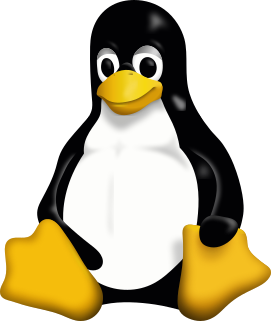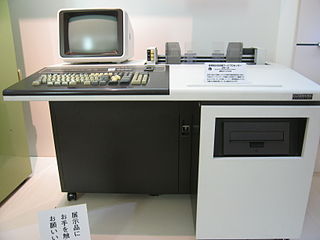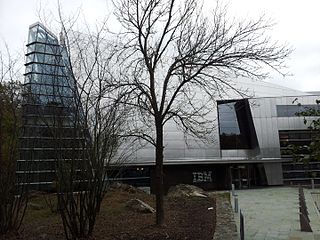
AbiWord is a free and open-source software word processor. It was originally written in C++ and since version 3 it is based on GTK+ 3. The name "AbiWord" is derived from the root of the Spanish word "abierto", meaning "open".
EasyWriter was a word processor first written for the Apple II series computer in 1979, the first word processor for that platform.

Microsoft Office is a family of client software, server software, and services developed by Microsoft. It was first announced by Bill Gates on August 1, 1988, at COMDEX in Las Vegas. Initially a marketing term for an office suite, the first version of Office contained Microsoft Word, Microsoft Excel, and Microsoft PowerPoint. Over the years, Office applications have grown substantially closer with shared features such as a common spell checker, OLE data integration and Visual Basic for Applications scripting language. Microsoft also positions Office as a development platform for line-of-business software under the Office Business Applications brand. On July 10, 2012, Softpedia reported that Office is used by over a billion people worldwide.

An operating system (OS) is system software that manages computer hardware and software resources and provides common services for computer programs.

WordStar is a word processor application that had a dominant market share during the early- to mid-1980s. It was published by MicroPro International, and written for the CP/M operating system but later ported to MS-DOS. Although Seymour I. Rubinstein was the principal owner of the company, Rob Barnaby was the sole author of the early versions of the program. Starting with WordStar 4.0, the program was built on new code written principally by Peter Mierau.

Advanced Package Tool, or APT, is a free-software user interface that works with core libraries to handle the installation and removal of software on Debian, Ubuntu, and related Linux distributions. APT simplifies the process of managing software on Unix-like computer systems by automating the retrieval, configuration and installation of software packages, either from precompiled files or by compiling source code.

WPS Office is an office suite for Microsoft Windows, Linux, iOS and Android, developed by Zhuhai-based Chinese software developer Kingsoft. WPS Office is a suite of software which is made up of three primary components: WPS Writer, WPS Presentation, and WPS Spreadsheet.

The GNU Project is a free-software, mass-collaboration project, first announced on September 27, 1983 by Richard Stallman at MIT. Its aim is to give computer users freedom and control in their use of their computers and computing devices, by collaboratively developing and providing software that is based on the following freedom rights: users are free to run the software, share it, study it and modify it. GNU software guarantees these freedom-rights legally, and is therefore free software; the use of the word "free" always being taken to refer to freedom.
MacWrite was a WYSIWYG word processor application released along with the first Apple Macintosh systems in 1984. Together with MacPaint, it was one of the two original "killer applications" that propelled the adoption and popularity of the GUI in general, and the Mac in particular.

Application software is software designed to perform a group of coordinated functions, tasks, or activities for the benefit of the user. Examples of an application include a word processor, a spreadsheet, an accounting application, a web browser, an email client,a media player, a file viewer, an aeronautical flight simulator, a console game or a photo editor. The collective noun application software refers to all applications collectively. This contrasts with system software, which is mainly involved with running the computer.
The Andrew Project was a distributed computing environment developed at Carnegie Mellon University (CMU) beginning in 1982. It was an ambitious project for its time and resulted in an unprecedentedly vast and accessible university computing infrastructure.
A software requirements specification (SRS) is a description of a software system to be developed. It is modeled after business requirements specification (CONOPS), also known as a stakeholder requirements specification (StRS). The software requirements specification lays out functional and non-functional requirements, and it may include a set of use cases that describe user interactions that the software must provide to the user for perfect interaction.
TextMaker is a word processor developed by the Nuremberg (Germany) based software company SoftMaker and available as part of the SoftMaker office suite. Earlier versions were also sold separately.

Linux is a family of free and open-source software operating systems based on the Linux kernel, an operating system kernel first released on September 17, 1991 by Linus Torvalds. Linux is typically packaged in a Linux distribution.

Pootle is an online translation management tool with translation interface. It is written in the Python programming language using the Django framework and is free software originally developed and released by Translate.org.za in 2004. It was further developed as part of the WordForge project and the African Network for Localisation and is now maintained by Translate.org.za.
SVFLUX is a finite element seepage analysis program developed by SoilVision Systems Ltd.. The software is designed to analyze both saturated and unsaturated flow through the ground through the solving of Richard's equation. The program is used in the fields of civil engineering and hydrology in order to analyze seepage and groundwater regional flow. The software is used for the calculation of flow rates, pore-water pressures, and pumping rates associated with regional groundwater flow. The software can be coupled with CHEMFLUX in order to calculate diffusion, advection, and decay rates or with SVHEAT in order to calculate thermal gradients and freeze/thaw fronts.
MEDUSA, is a CAD program used in the areas of mechanical and plant engineering by manufacturers and Engineering, Procurement and Construction (EPC) companies. The system's history is closely tied to the beginnings of mainstream CAD and the research culture fostered by Cambridge University and the UK government as well as the resulting transformation of Cambridge into a world-class tech centre in the 1980s.
Applixware is a suite of proprietary modular applications for Linux edited by Vistasource, Inc.

Citavi is a program for reference management and knowledge organization for Microsoft Windows published by Swiss Academic Software in Wädenswil, Switzerland. Citavi is very widely used in Germany, Austria, and Switzerland, with site licenses at most universities, many of which offer training sessions and settings files for Citavi.

Listaller is a free computer software installation system aimed at making it simple to create a package that can be installed on all Linux distributions as well as providing tools and API to make software management on Linux more user-friendly.
















